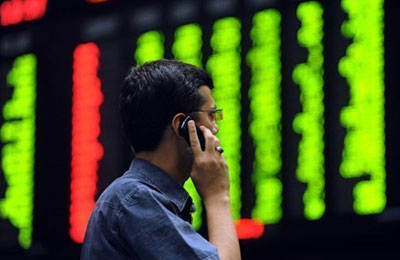
Expatriates investment in GCC... on upward climb
Rising expat numbers to boost investment in GCC
DUBAI, November 12, 2014
GCC countries continue to be among the world’s fastest growing economies, indicating that numbers of non-resident Indians (NRIs) and other expatriates will rise steadily, a report said, adding that the trend is widely seen as an opportunity.
Although the investment environment has become tougher for financial advisers and wealth manager, most were very positive about future prospects, added the fifth annual Middle Eastern Investment Panorama (MEIP), issued by strategic research consultancy, Insight Discovery.
Over the year to September 30, the Morgan Stanley Capital International (MSCI) indices for Qatar and the UAE rose by 22.66 and 42.23 per cent respectively, underlining the benefits stemming from being promoted from frontier market to emerging market status and increasing listed companies’ access to global capital.
MSCI’s index for Saudi Arabia rose by 35.30 per cent in the same period, including a rise of 13.77 per cent in the three months to the end of September alone.
There has been widespread comment on the provision of much greater access to foreign investors who want to buy shares that are listed on Tadawul, the stock market of Saudi Arabia the MEIP report said.
“The details of the liberalisation of Saudi Arabia’s market are still to be seen. For now, though, we doubt that it will have much impact on the advisers and their clients – particularly as so few of the advisers are actually based in Saudi Arabia itself,” said Nigel Sillitoe, CEO of Insight Discovery.
“However, we do not think that the promotion of Qatar and UAE markets has had much impact on the attitudes of advisers. In late 2013, we found that 49 per cent of advisers were looking to lift their clients’ allocations to GCC region equity strategies. Some 40 per cent were looking to keep the allocations unchanged, and the final 11 per cent expected that they would reduce allocations.
“A year later, the corresponding figures are 43, 38, and 19 per cent. We suspect that some of the advisers are looking to book profits. However, in a general environment of increased uncertainty, larger numbers of advisors are looking to reduce allocations to almost all the asset classes that we considered in this year’s MEIP survey,” he added.
The survey asked advisers to identify opportunities and challenges for the development of life insurance across the GCC countries and were markedly more upbeat about the prospects for family takaful than they were in late 2013.
Similarly, the already large and still growing numbers of NRIs and other expatriates from South Asia is more widely seen as an opportunity than it was 12 months ago. Advisers are also more hopeful about issues such as the general volatility of financial markets and the small scale/lack of capital on the part of local insurers in the GCC.
Like their clients, many of the advisers are Muslims from South Asia or non-GCC countries in the Middle East. It is therefore unsurprising that 60 per cent have clients who have enquired about Sharia-compliant products, with family takaful, regular savings products, mutual funds, sukuks, and general takaful being of greatest interest, the report said.
“With this year’s fifth edition of MEIP, we are confident that we have conducted the largest survey of independent financial advisers and wealth managers in the region. No fewer than 26 companies are part of this project, which proves how important the Middle East is becoming as a financial destination for both asset management and life companies,” Sillitoe said.
“Besides attracting companies like Franklin Templeton, Morningstar, Pioneer Investments and Zurich we are delighted that the Qatar Financial Centre Authority has joined us this year.”
Key findings of the 2014 MEIP include:
• In a general environment of increased uncertainty, larger numbers of advisors are looking to reduce allocations to almost all the asset classes covered in the survey.
• More than 75 per cent of advisers see the rising cost of living in the region, which affects the amount that people can save, as being a challenge.
• Since much of the region’s managerial workforce is made up of expatriates, they form a considerable savings pool and many of them accordingly turn to financial advisers for help with investment planning.
• Financial advisers are increasingly seen as a vital link between savers and life companies and international asset managers
Dhiraj Rai, director, Gulf and Eastern Mediterranean at Franklin Templeton Investments commented, “The benefits investors can gain from ongoing professional advice far outweigh the risks. We believe financial advice to be invaluable in helping investors define their needs, narrowing the search for investments suitable to their unique financial objectives.”
“This is especially true in the Gulf region, where investment preferences and requirements vary significantly amongst the various local and expat groups in the region. Given the variety of investment options available today, guidance from a financial adviser is crucial to the process of navigating risk in today’s volatile investment environment,” he added.
Neal Jenkins of Pioneer Global Investments underlined the report’s findings that the investment environment has become tougher and that broad diversification and a focus on managing risk will be key. – TradeArabia News Service







